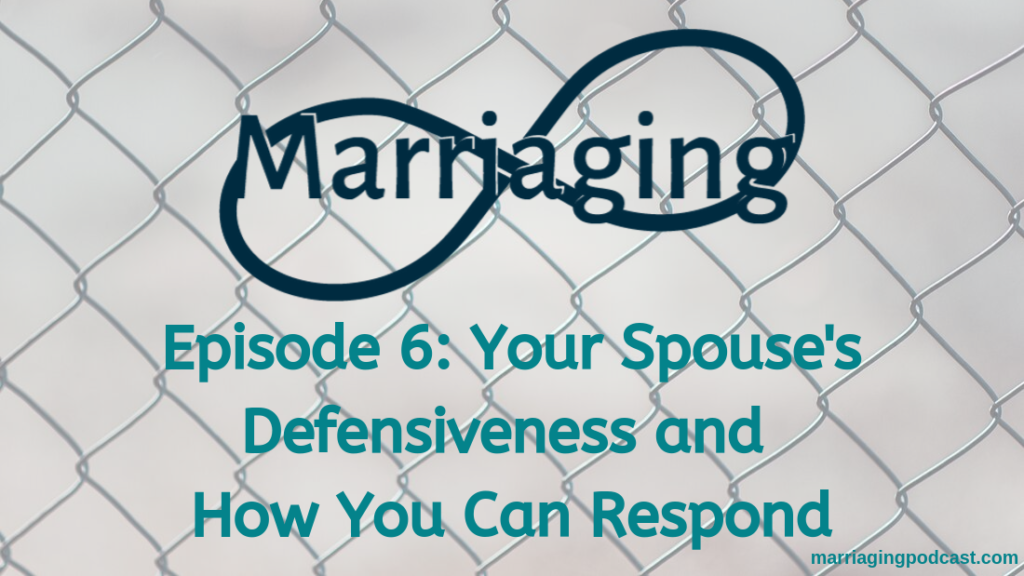Your Spouse’s Defensiveness and How You Can Respond
Overview of the Episode:
Defensiveness in your relationship is harmful. It’s important for you to know how to respond when your spouse gets defensive, and how to communicate in a way that facilitates keeping guards down and listening to each other.
Have you ever tried to have a conversation with your spouse, and they suddenly get upset, or snappy with you? Maybe you try to share a concern with them, even about something small, and they begin making excuses.
Defensiveness can be even worse about bigger topics, like your sex life. If you try talking with them about this, and your spouse gets defensive, the conversation can get derailed quickly. You try not to hold your concerns in, because you don’t want to build up resentments either. But the defensiveness from your spouse doesn’t make that easy.
Remember, you can only control yourself. You can’t change your spouse. But there are some skills you can work on to help reduce defensiveness and respond to it better.
How you can approach issues without triggering defensiveness in your partner:
- When you ask for something or express a concern, put it in a gentle statement or request. Don’t blame or get upset. “Why do you always leave the clothes on the floor?” can trigger defensiveness much more quickly than “It’s really important and helpful for me when the clothes are put in the basket. Can you please also do this?” You can also say how you feel when a situation happens, focusing on your feelings and not their actions.
- When your partner gets defensive, they may be hearing what you’re saying as an attack on them. When you approach it gently and offer positive solutions, you avoid becoming critical of your partner.
- When you bring something up, keep the conversation focused specifically on that particular issue. Don’t let it become a long list of all the things you see your partner doing wrong.
Even when you work hard at communicating clearly, your spouse might still get defensive. Here is what you can do to respond to their defensiveness:
- First, think about the first sign you get from your spouse that tells you they’re getting defensive. This may be a facial expression, or tone in their voice, or something else. Keep this sign in mind, and be ready to handle it calmly.
- When you first recognize that sign of your spouse getting defensive, take a deep, slow breath and count to 5. Try to put yourself in their shoes and think about what they’re experiencing. Maybe they try to love you in different ways and feel unappreciated. Or maybe they had a long day and already feel very stressed.
- Remember that defensiveness is often an outward expression of an inward hurt. Your partner may feel criticized or insecure, even if that’s not what you intended.
- Once you’ve slowed down, try to think about what this inward hurt might be for your partner. Your partner is a human who needs your empathy and love. Try to understand how they feel.
- Then, try to approach the issue again and restart the conversation, this time possibly even calmer. You can even say “I’m sorry, I did not mean for this to upset you. My hope is that by us discussing this and finding a resolution, I also won’t build up and frustrations or resentments toward you. Maybe we both could agree on a way to work through this.”
- Even when your spouse get’s defensive, you can choose to engage calmly and speak with love and care.
- Remember that if this is a typical pattern, it can take a while to break the defensiveness and build trust between the both of you for these tough conversations.

